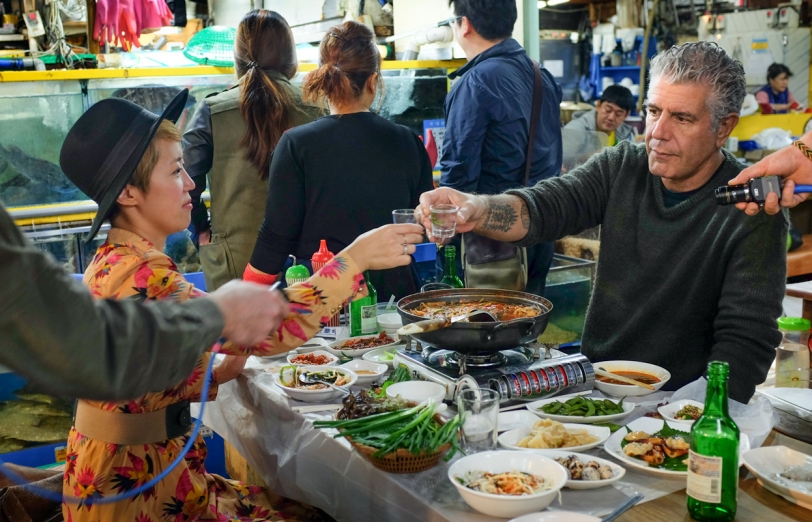Anthony Bourdain died by his own hand in 2018, and the circumstances of his passing have inspired numerous praiseworthy (and in most significant instances, overdue) efforts to address mental health and suicide prevention in the service industry.
A prominent local example is A Taste for Life.
The 4th annual “A Taste for Life” at Four Pegs in Germantown (Sun., June 23)
Bourdain’s post-kitchen career as an author and television personality lasted a scant two decades, but his influence is incalculable. We’ll never know how many food service professionals chose their vocational paths because of Bourdain, much like an entire generation of young persons saw The Beatles on Ed Sullivan’s show in 1964 and immediately resolved to become musicians.
And yet …
Owing perhaps to Bourdain’s ubiquity, or the relatively brief time that has passed since his departure, an honest assessment of his legacy seems daunting. Icons who leave us far too soon can be made ironclad.
Alicia Kennedy, to whom you recently were introduced, takes a stab at it.
Why there won’t be a “new” Anthony Bourdain.
What he did in his rather short but wildly influential career as a writer and television host was to represent these caricatures—to swagger in jeans and a leather jacket as a bad boy cowboy outlaw chef might—for an audience who saw him as a conduit to tables they’d never be invited to sit at and places they might not be allowed to enter. To an audience of millions, he played an Everyman. How could anyone ever replace him?
It’s hard to imagine, for both the irreplicable reasons of his unique life experience up to the publication of Kitchen Confidential when he was 44 years old (not exactly the age of a “bad boy”) and the un-uniqueness of his identity markers allowing him to be broadly understood, trusted, and welcome wherever he went. The gravitas of his age, race, and gender served to balance out his outlaw reputation—earned mainly through having worked in kitchens, used drugs, and gone a long time without paying taxes—use of profanity, and enjoyment of a cold beer on a hot beach. Despite his best efforts, he could not out-run the very fact that he was the well-educated, New Jersey–born son of a music executive father and New York Times editor mother, and chose the cook life because he didn’t like the straight world. He wanted rock and roll; he craved a pirate’s life.
But he couldn’t outrun the fact of his middle-class-ness, and it would eventually be this ability to code-switch between worlds both rough and refined that would propel his success. As NYU food studies professor Krishendu Ray put it in a Gastronomica piece on food TV in 2007 titled “Domesticating Cuisine: Food and Aesthetics on American Television,” “Bourdain can carry on with this ‘junkie Byron’ attitude because he does not carry the burden of class.”
As always, food for thought.
—
“Edibles & Potables” is Food & Dining Magazine’s Sunday slot for news and views that range beyond our customary metropolitan Louisville coverage area, as intended to be food (and drink) for thought.
Previously …
Edibles & Potables: Age limits, carding, and non-alcoholic beer, wine and spirits























